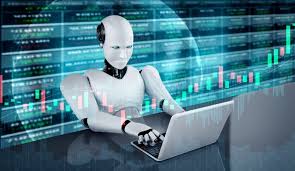In the world of forex trading, where speed and accuracy are paramount, the emergence of forex robots has revolutionized the way traders approach the market. These automated systems, powered by complex algorithms and advanced forex robot, have become increasingly popular among both novice and experienced traders alike. In this article, we delve into the phenomenon of forex robots, exploring their benefits, challenges, and the future they hold in the ever-evolving landscape of financial markets.
What Are Forex Robots?
Forex robots, also known as expert advisors (EAs), are computer programs designed to analyze the forex market, identify trading opportunities, and execute trades automatically on behalf of traders. These robots operate based on pre-defined criteria and parameters set by the trader or developer, eliminating the need for manual intervention in the trading process.
How Do Forex Robots Work?
Forex robots utilize a variety of technical indicators, statistical analysis, and machine learning algorithms to make trading decisions. These algorithms can analyze vast amounts of data in real-time, enabling them to identify patterns and trends that may not be apparent to human traders. Once a trading opportunity is identified, the robot executes the trade according to the parameters set by the user.
The Benefits of Forex Robots
- 24/7 Trading: Unlike human traders who need rest, forex robots can operate around the clock, taking advantage of opportunities in different time zones and market conditions.
- Emotion-Free Trading: One of the biggest challenges for human traders is the impact of emotions on decision-making. Forex robots eliminate emotional bias from trading, ensuring consistency in strategy execution.
- Speed and Efficiency: Forex robots can execute trades with lightning-fast speed, reducing the risk of slippage and maximizing opportunities in rapidly changing market conditions.
- Backtesting and Optimization: Most forex robots come with backtesting capabilities, allowing traders to test their strategies against historical data. This helps in refining and optimizing trading strategies for better performance.
- Diversification: With the ability to trade multiple currency pairs simultaneously, forex robots offer traders the opportunity to diversify their portfolios and spread risk across different assets.
Challenges and Risks
While forex robots offer numerous benefits, they also come with certain challenges and risks that traders should be aware of:
- Over-Optimization: There’s a risk of over-optimizing trading strategies based on past data, which may not necessarily perform well in real-time market conditions.
- Lack of Adaptability: Forex robots operate based on pre-defined rules and parameters, which means they may struggle to adapt to sudden and unexpected market changes or events.
- Dependency on Technology: Since forex robots rely on technology, there’s a risk of technical failures, glitches, or connectivity issues that could disrupt trading operations.
- Market Conditions: Not all trading strategies are suitable for all market conditions. Traders need to carefully monitor and adjust their robots to perform effectively in different market environments.
The Future of Forex Robots
As technology continues to advance, the capabilities of forex robots are likely to evolve as well. We can expect to see more sophisticated algorithms, machine learning techniques, and artificial intelligence being integrated into these systems, enabling them to adapt to changing market conditions more effectively.
Moreover, the rise of blockchain technology and cryptocurrencies has opened up new avenues for automated trading, with some forex robots now capable of trading digital assets alongside traditional currencies.
In conclusion, forex robots have become an integral part of the modern trading landscape, offering traders a powerful tool to automate their strategies and capitalize on market opportunities. While they come with their own set of challenges and risks, when used wisely, forex robots can enhance trading efficiency, mitigate emotional biases, and potentially generate consistent returns for traders in the dynamic world of forex markets.
